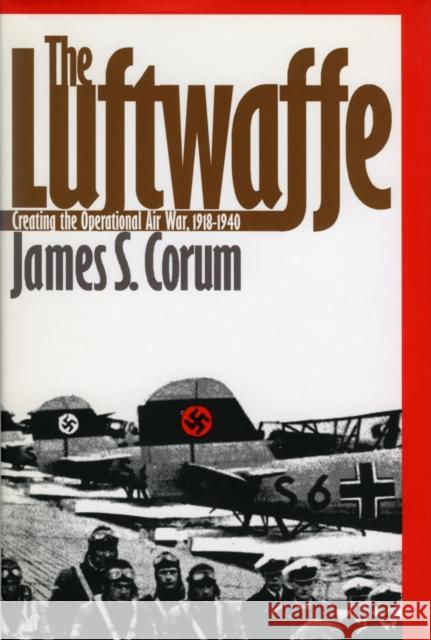The Luftwaffe: Creating the Operational Air War, 1918-1940 » książka
topmenu
The Luftwaffe: Creating the Operational Air War, 1918-1940
ISBN-13: 9780700609628 / Angielski / Miękka / 1997 / 392 str.
At the end of World War I, the German military machine lay devastated, forbidden any attempt to rebuild. But by the dawn of World War II, its army and air forces had both been rejuvenated to sufficient vigor to conquer most of Europe. As James Corum shows, the Luftwaffe's dramatic resurrection underscored the remarkable success of Germany's visionary interwar planning.
A superb example of both military and intellectual history, Corum's study provides a complete and accurate account of the evolution of German military aviation theory, doctrine, war games, and operations between the two world wars. It reveals how the Germans, in defiance of Versailles, thoroughly studied and tested the lessons of World War I, analyzed the emerging air doctrines of other nations, and experimented with innovative aviation technology to create the world's most powerful air force by 1940. Drawing heavily upon archival sources, Corum discloses the debates within the General Staff--led by the likes of Hans van Seeckt, Helmuth Wilberg, Wolfram von Richthofen, and Walter Wever--about the future role of airpower and the problems of aligning aviation technology with air doctrine. He challenges previous accounts and demolishes a number of myths, for example demonstrating that Germany did not dismiss the potential of strategic bombing or embrace terror bombing of civilian populations, and was not heavily influenced by its popular culture's romance with aviation. Corum also illuminates Germany's comprehensive approach to highly mobile combined-arms warfare, its secret research and training in the Soviet Union, and its remarkable successes during the Spanish Civil War. While focusing primarily on the interwar period, he extends his analysis into the early years of World War II to examine the Luftwaffe's effectiveness in Poland and France, and expose its flaws in the Battle of Britain. As a companion to Corum's acclaimed study of the German army between the wars, The Luftwaffe reminds us how operational doctrine, combined with one of the greatest fighting forces ever assembled, indelibly altered the fate of nations.










